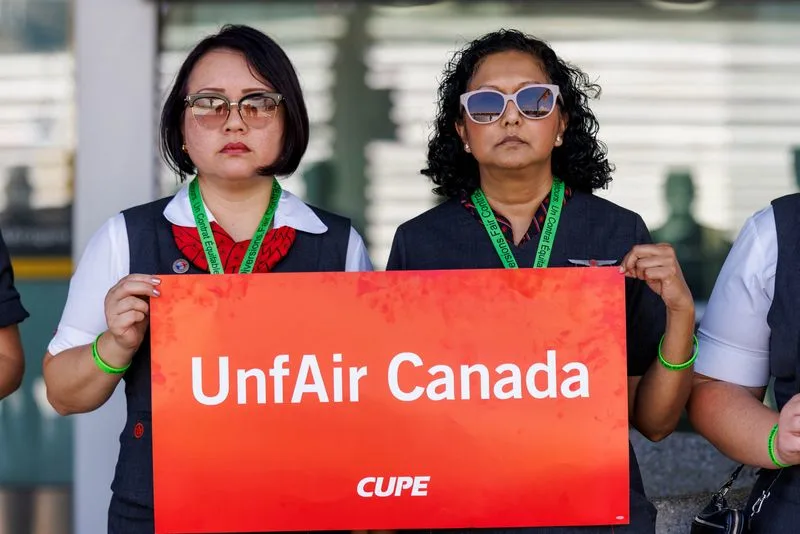Tens of thousands of travelers were left stranded on Saturday after Air Canada flight attendants walked off the job in a dispute over wages, triggering the airline’s first strike by cabin crew since 1985.
The strike began just before 1 a.m. EDT, with hundreds of attendants forming picket lines at Toronto Pearson, Montreal-Trudeau, Calgary, and Vancouver airports. The Canadian Union of Public Employees (CUPE), representing more than 10,000 flight attendants, confirmed the stoppage on social media, citing long-standing frustrations over pay conditions.
Air Canada, the country’s largest airline, was forced to suspend the majority of its 700 daily flights, affecting more than 100,000 passengers. The disruption is expected to ripple beyond Canadian borders, as Air Canada is also the busiest foreign carrier serving the U.S. by scheduled flights. Operations by its regional partners, Air Canada Jazz and PAL Airlines, will continue.
At the heart of the dispute is how attendants are compensated. Currently, flight attendants are only paid while the aircraft is in motion. CUPE is demanding payment for duties performed on the ground, including boarding and assisting passengers between flights. While Air Canada has offered partial compensation for that time at 50% of the hourly rate and a 38% increase in overall pay over four years, the union insists the proposal falls short.
“Flight attendants deserve to be paid for all the time they work, not just when the plane is moving,” CUPE officials said at the Toronto picket line.

